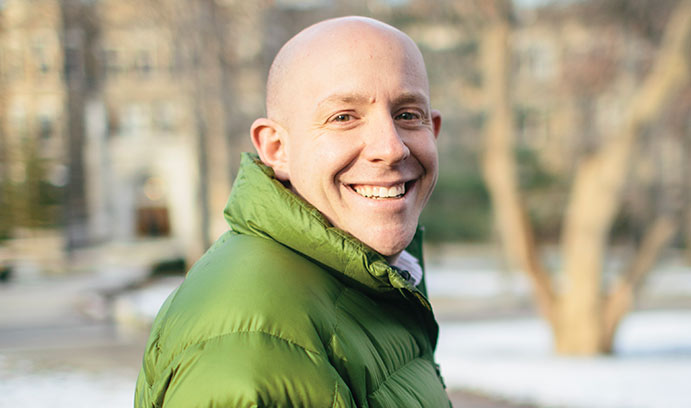Four Questions with Peter Costa

Peter Costa, director of Lehigh's Health Advancement & Prevention Strategies Office, was recently recruited by the CDC to help in the national response to the Ebola scare.
Peter J. Costa, director of Lehigh's Health Advancement & Prevention Strategies Office, was recently recruited by the CDC to help in the national response to the Ebola scare. Here, he talks about Ebola, his role in providing a training plan for health care workers, and a new national threat -- measles.
Given the Ebola threat in the U.S. in 2014 and the criticism of the CDC’s response, what more needs to be done to fight the deadly virus, protect health-care workers and reduce public fears?
U.S. healthcare facilities must be able to properly screen for risk factors, identify and isolate possible patients with Ebola and inform public health authorities if they suspect a patient has Ebola. To better protect healthcare workers, infection control is key. Most importantly, providers need to practice, practice, practice. Public fears can best be mitigated by clear, consistent and timely health communications.
- What is your role in providing a national training plan for frontline healthcare workers?
Our objectives are to increase awareness of proper protocols and procedures to follow; ensure adherence to basic infection control, and increase competency with appropriate use of personal protective equipment. Currently, my role is focused on developing a training curriculum for assessment and frontline hospitals.
- Ebola fighters have been demonized—and celebrated. What has the Ebola crisis, and our response to it, taught us?
We must remain hyper-vigilant. We’re not as prepared as we thought we were as a nation or as an international community to respond to a public health crisis on this scale. We must continue to plan and practice for emergencies. Lastly, communications are critical. Information must be available, coordinated and timely.
In the emotional debate over measles vaccines, what would you tell people who fear vaccinations cause autism or other disorders among children?
Vaccines are a safe and effective way to protect the health of individuals and communities against disease. To my knowledge, there is no scientific evidence to substantiate claims that vaccinations cause autism; in fact, such opinions have been thoroughly discredited. The benefits of vaccines far outweigh the risks, and it is always good public health practice to immunize against infectious disease.
Posted on:

